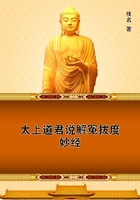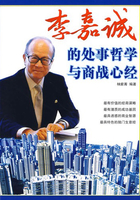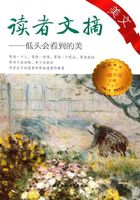It had, however, been brought into England at a much earlier period. John Evelyn, in the year 1638, speaks of it being drunk at Oxford, where there came to his college "one Nathaniel Conoposis out of Greece, from Cyrill the patriarch of Constantinople, who, returning many years after, was made Bishop of Smyrna." Twelve good years later, a coffee-house was opened at Oxford by one Jacobs, a Jew, where this beverage was imbibed "by some who delighted in novelty." It was, however, according to Oldys the antiquarian, untasted in the capital till a Turkey merchant named Edwards brought to London a Ragusan youth named Pasqua Rosee, who prepared this drink for him daily. The eagerness to taste the strange beverage drawing too much company to his board, Edwards allowed the lad, together with a servant of his son-in-law, to sell it publicly; whence coffee was first sold in St. Michael's Alley in Cornhill by Pasqua Rosee, "at the sign of his own head," about the year 1658.
Though coffee-drinkers first met with much ridicule from wits about town, and writers of broadsheet ballads, the beverage became gradually popular, and houses for its sale quickly multiplied. Famous amongst these, in the reign of the merry monarch, besides that already mentioned, was Garraway's in Exchange Alley; the Rainbow, by the Inner Temple Gate; Dick's, situated at No. 8, Fleet Street; Jacobs', the proprietor of which moved in 1671 from Oxford to Southampton Buildings, Holborn; the Grecian in the Strand, "conducted without ostentation or noise;"the Westminster, noted as a resort of peers and members of parliament; and Will's, in Russell Street, frequented by the poet Dryden.
These houses, the forerunners of clubs, were, according to their situation and convenience, frequented by noblemen and men of quality, courtiers, foreign ministers, politicians, members of learned professions, wits, citizens of various grades, and all who loved to exchange greetings and gossip with their neighbours and friends. Within these low-ceilinged comfortable coffee-house rooms, fitted with strong benches and oak chairs, where the black beverage was drunk from handless wide brimmed cups, Pepys passed many cheerful hours, hearing much of the news he so happily narrates, and holding pleasant discourse with many notable men.
It was in a coffee-house he encountered Major Waters, "a deaf and most amorous melancholy gentleman, who is under a despayer in love, which makes him bad company, though a most good-natured man." And in such a place he listened to "some simple discourse about quakers being charmed by a string about their wrists;" and saw a certain merchant named Hill "that is a master of most sorts of musique and other things, the universal character, art of memory, counterfeiting of hands, and other most excellent discourses."In days before newspapers came into universal circulation, and general meetings were known, coffee-houses became recognised centres for exchange of thought and advocacy of political action.
Aware of this, the government, under leadership of Danby, not desiring to have its motives too freely canvassed, in 1675 issued an order that such "places of resort for idle and disaffected persons" should be closed. Alarmed by this command, the keepers of such houses petitioned for its withdrawal, at the same time faithfully promising libels should not be read under their roofs.
They were therefore permitted to carry on their business by license.
Next in point of interest to coffee-houses were taverns where men came to make merry, in an age when simplicity and good fellowship largely obtained. As in coffee-houses, gossip was the order of the day in such places, each tavern being in itself "a broacher of more news than hogsheads, and more jests than news." Those of good standing and fair renown could boast rows of bright flagons ranged on shelves round panelled walls; of hosts, rotund in person and genial in manner; and of civil drawers, who could claim good breeding. The Bear, at the bridge-foot, situated at the Southwark side, was well known to men of gallantry and women of pleasure; and was, moreover, famous as the spot where the Duke of Richmond awaited Mistress Stuart on her escape from Whitehall.















